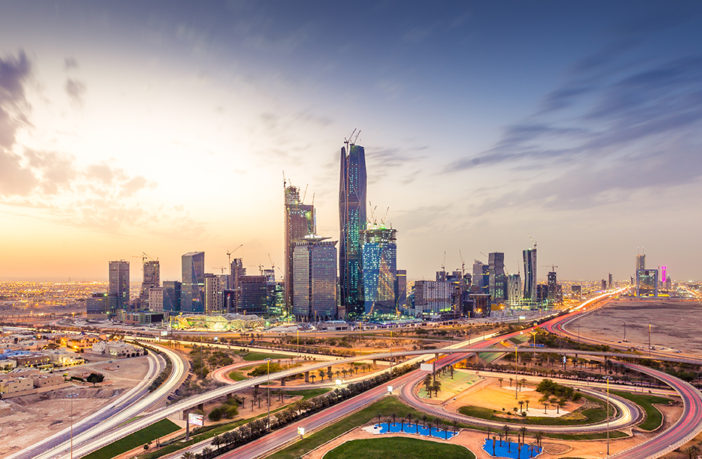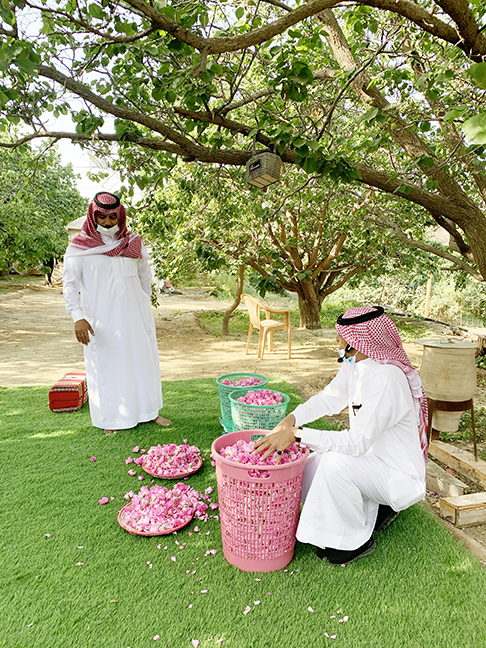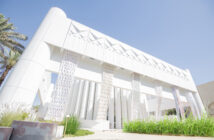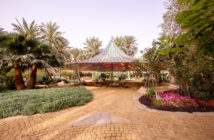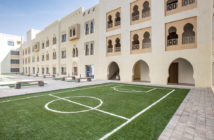ROSITSA DOROVSKA
2021 has been a fruitful year for Saudi Arabia. Despite the ongoing pandemic, Saudi Arabia managed to rise above the challenges. With a leadership focused on harnessing the nation’s intrinsic strengths, many notable achievements have been made in the past months to solidify the pillars of the Kingdom’s vision: a vibrant society, a thriving economy, and an ambitious nation. We look back at Saudi Arabia’s fulfilling 2021.
Here is a recap of Saudi Arabia’s achievements during the last twelve months, paving the way for a better 2022.

The 41st Summit of the Cooperation Council for the Arab States of the Gulf (GCC) in AlUla
The Kingdom of Saudi Arabia was the host country of the 41st GCC Summit, a historic event held in the ancient city of AlUla.
Titled ‘Sultan Qaboos and Sheikh Sabah Summit’ in memory of the late rulers of the Sultanate of Oman and the Emirate of Kuwait, the six -member states of the Council – Bahrain, Kuwait, Oman, Qatar, Saudi Arabia, and the United Arab Emirates had conceived common GCC policies under the Declaration of AlUla and promised to further strengthen the bonds of brotherhood among them.
Another important outcome of the Summit was the restoration of the diplomatic relations with Qatar.

The “Saudi Green Initiative” and the “Middle East Green Initiative”
Announced by HRH Crown Prince Mohammad bin Salman, the Saudi Green Initiative and the Middle East Green Initiative are the Kingdom’s latest strategies against climate change and the vulnerability of the Middle East, in particular.
In line with Vision 2030 and the targets outlined after the virtual Leaders’ Summit on Climate held last April 2021, Saudi Arabia is doing its share in combating the global threat, accounting its contribution as a major oil producer.
The aim is to plant 10 billion trees across the Kingdom and 50 billion in the Middle East to reduce global carbon emissions by more than 4% of global contributions, and raise protected areas to more than 30% of total land area. Followed by the Saudi Green Initiative Forum and the Middle East Green Initiative Summit in October, the strategies are an important roadmap for confronting climate change.

Tackling the second year of the COVID-19 pandemic
The decisive response to the pandemic, taken by the authorities in Saudi Arabia, led to a steady, low number of cases and high vaccination rate with 63.6% of the population being fully vaccinated,as of November 2021. With some travelling restrictions still in place and with the cooperation of its citizens and residents in abiding with the safety protocols, the country is an example of a swift stance against the disease.
The Kingdom’s Ministry of Health has been a stalwart in encouraging everyone to get vaccinated and get the booster dose six to eight months after the second dose. The Kingdom has also allowed the non-wearing of masks in select outdoor places but reiterates the need to wear face masks indoors and still adhere to precautionary measures.

Economic perspective
Despite the negative prognosis of the effect of the pandemic on businesses in the Middle East, the economic recovery of the Kingdom is regarded as promising in 2021. The growth of its non-oil GDP is expected to reach 2.8% and is already back to pre-pandemic levels.
The diversification efforts related with Vision 2030 objectives are on the way and employment is increasing, especially among the locals, amidst the expat exodus in the Gulf.
Due to various business and social reforms, the ease of doing business is improving according to the World Bank charts, and investment spending is on the rise. Regardless of higher VAT, the domestic economy is thriving due to increased consumer spending following the boost in local tourism and the reopening of the country for entertainment and events.
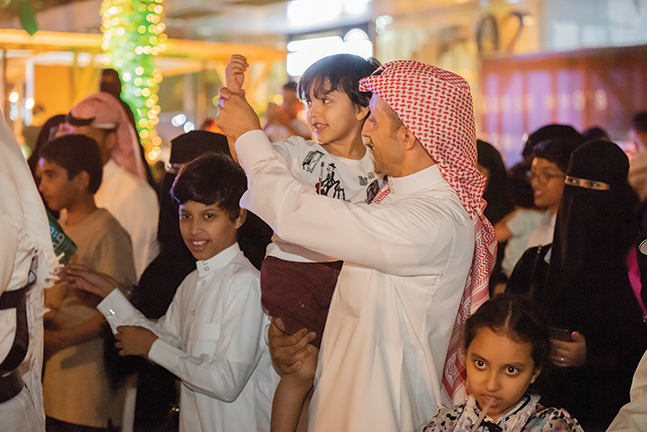
Social perspective
With the lifting of some of the restrictions on social gatherings and relaxing the mask usage outdoors, the country is heading back to normal after being one of the strictest states in terms of lockdowns and social distancing. Now, celebrations and gatherings are not only confined at home; friends and families can already meet outside, in restaurants, parks, and even in cinemas. The reopening of the Kingdom for international tourists and large-scale events also followed.
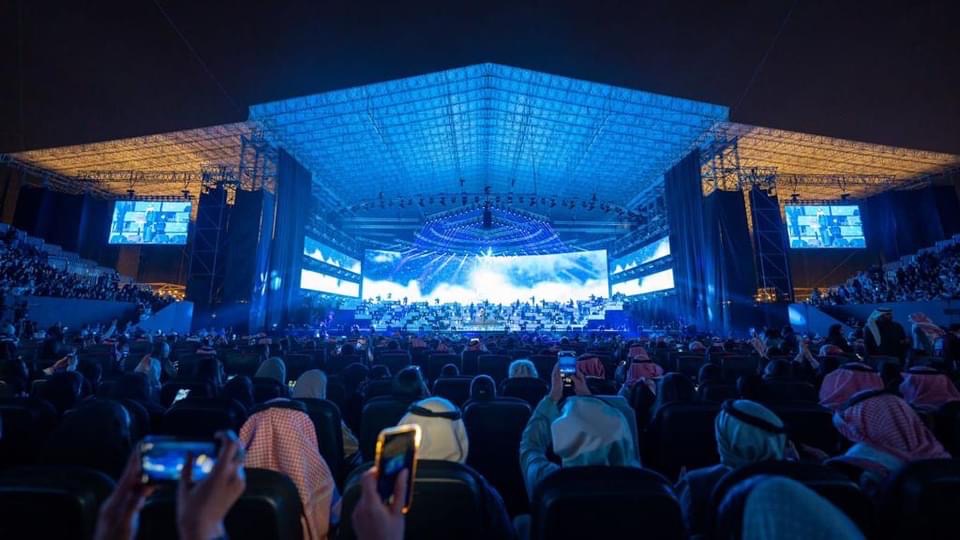
Bringing back the entertainment
This year saw the return of the much-awaited events in the country. With achieving a high vaccination rate and making the immune status compulsory for most of the daily activities, the country had relaunched some of the most beloved happenings.
One of these is the bigger and better Riyadh Season with thousands of events and activities planned all throughout the city. According to statistics, Riyadh Season recorded around 4.5 million visitors for a month, creating more than 122,000 jobs.
Another major event was the hosting of the 2021 Saudi Arabia Grand Prix which took place at the brand-new Jeddah Corniche Circuit.
Something to also look forward to is the return of MDLBEAST Soundstorm, the region’s biggest and loudest music festival which will happen on December 16-19, 2021. The event will last for four days and will include 200+ artists on 8 stages.
Boosting of local and international tourism
After opening for international tourists for the first time in 2019, the hiatus caused by the pandemic was a hard blow on the Kingdom’s image as a travel destination. To cope with the unforeseen situation, the local tourism was boosted equally by the authorities and by citizens and expats, driven by patriotism and curiosity to explore the country.
Domestic travelling became a trend and an indispensable aid for the regional economies – keeping hotels and restaurants fully booked. There’s also a significant increase in issuing licenses for local tour guides and other professions in hospitality.
In 2021, a major event for the tourism industry was the opening of the office of the World Tourism Organization (UNWTO) in Riyadh – the first regional office for the Middle East, out of the UNWTO headquarters in Spain. It was inaugurated on the 26th of May, during the Tourism Recovery Summit held at the Ritz Carlton Hotel. Developing the Kingdom’s potential in becoming a major tourist destination is an important part of the Vision 2030’s agenda.
The UNWTO and NEOM have launched the “Tourism Experiences of the Future” challenge. According to the UNWTO website, this challenge “will source innovative ideas and disruptive business models related to the tourism needs of the future, in line with growing demand for new experiences. The competition is the first national initiative dedicated to identifying new companies that will lead the tourism sector’s transformation in Saudi Arabia.”
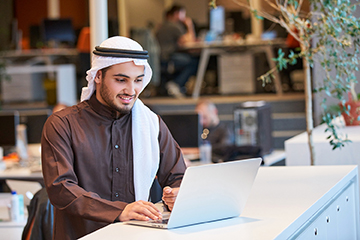
Human capital on spotlight
Continuing the transformation of the Kingdom on different social levels, Saudi Arabia announced major judicial reforms in 2021, favouring individuals and families. Four draft laws: the Personal Status Law, the Civil Transactions Law, the Penal Code for Discretionary Sanctions, and the Law of Evidence, are under development.
Another important reform that is already enforced is the amendments concerning the Kafala system or labor changes for improving the transparency of the market. They are allowing more mobility and freedom for the workers, ensuring their rights are protected. Saudization is also in full swing resulting in a huge boost to local employment.
A thriving social environment is important in attracting foreign manpower in a turbulent post-pandemic reality and after an expat exodus throughout the region. It is equally important for prospective investment and business opportunities.
Business is bouncing back
Implementing a Regional Headquarters Attraction Program for multinational companies is a bold initiative in transforming the country into a major business hub. During the latest edition of the Future Investment Initiative, 44 international companies from diverse sectors including energy, technology, F&B, consulting, and construction, have received licenses to move their regional headquarters to Riyadh. By year 2030, the program is expected to attract an investment of $18 billion and create thousands of jobs.
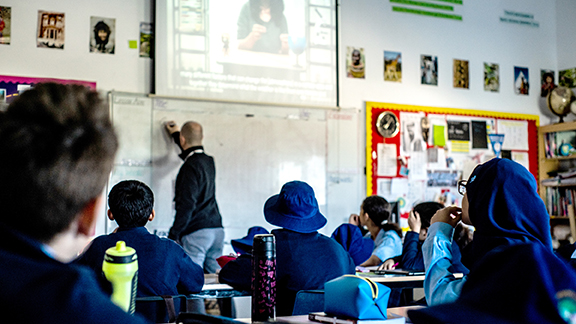
Changes in Education
Education around the world is still facing disruptions due to the pandemic. Most students in Saudi Arabia just went back to in-person classes, after one full academic year of remote studying.
With 20 TV channels dedicated to distance learning, Saudi Arabia proved to have one of the most effective and centralized programs for virtual learning. Blended learning is the new norm as mentioned by the Minister of Education. UNESCO just praised the “Madrasati” platform as one of the leading and most innovative systems for remote education.
Meanwhile, the schooling system is undergoing a reform by implementing the English language earlier and also including the Chinese language in the curriculum. They also opened up for disciplines like critical thinking and more subjects related to music and the arts.
The Human Capability Development Program (HCDP), a part of the Kingdom’s Vision 2030, was announced earlier this year by HRH, Crown Prince Mohammad bin Salman bin Abdulaziz Al Saud. According to the Vision 2030 website, “It aims to ensure that citizens have the required capabilities to compete globally by instilling values and developing basic and future skills, as well as enhancing knowledge. The program focuses on developing a solid educational base for all citizens to instill values from an early age, while preparing the youth for the future local and global labor market. It also focuses on upskilling citizens by providing lifelong learning opportunities, supporting innovation and entrepreneurship culture, and developing and activating policies and enablers to ensure KSA competitiveness.”
The above-mentioned accomplishments are just some of the highlights of the ongoing year and most of them are long-term strategies which will bear fruits in the near future.
With the end of the pandemic still unknown, the world has started to adapt and Saudi Arabia is no exception as the country actively seeks and works for solutions to this unprecedented crisis. The changes this year are truly remarkable and an example of the country’s decisiveness and flexible response to the changing times. From a macroeconomics perspective to leisure and tourism, and in ensuring the wellbeing of its citizens, the Kingdom has made the most out of the crisis, turning it into numerous possibilities.
2021 is certainly just a peek of what Saudi Arabia will be in the coming years. We look forward to what 2022 will bring!

